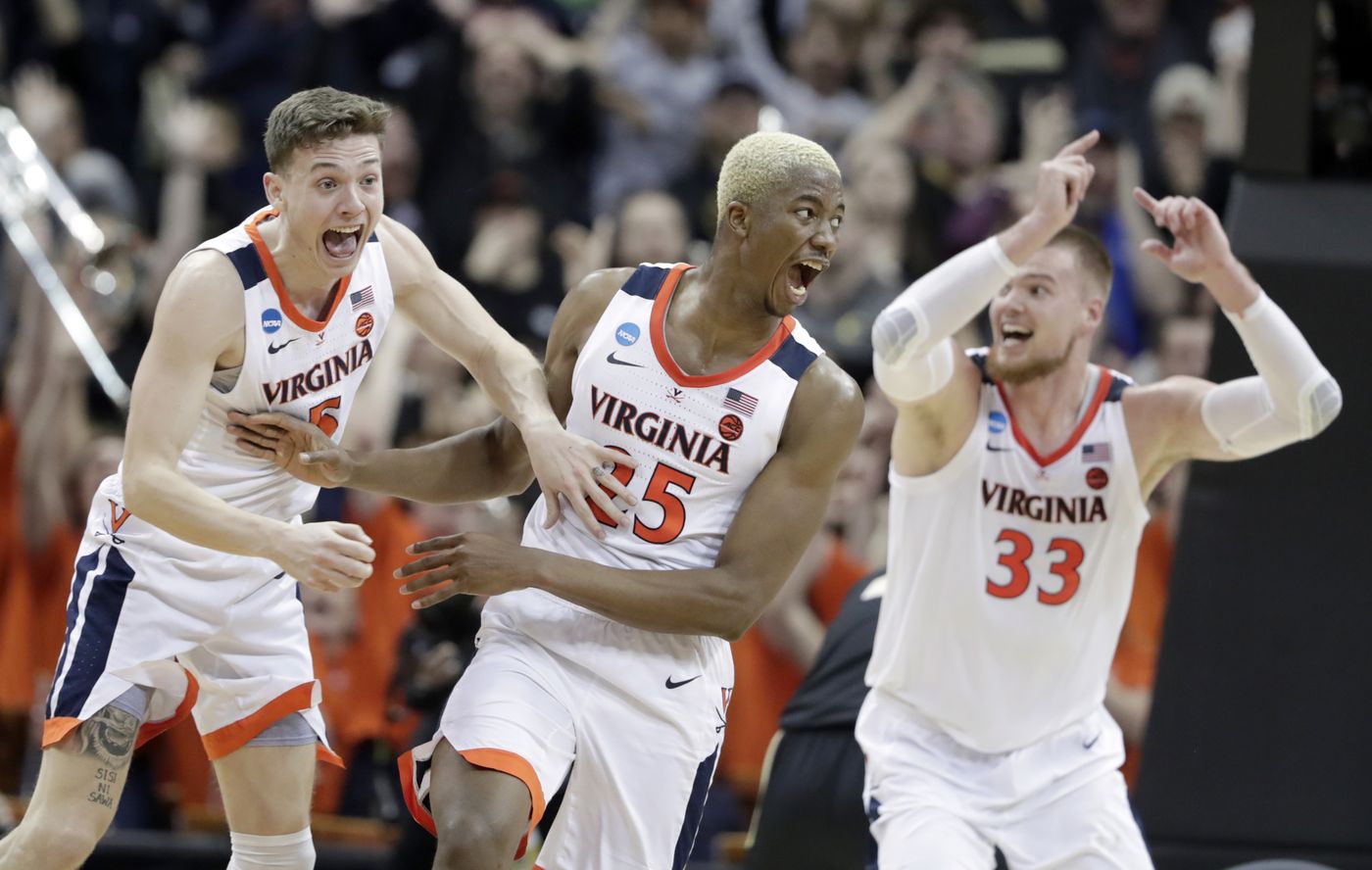
By Nancy Armour |
It’s hard not to look at where Virginia is, from where it was, and not believe there’s something larger at play.
The humiliation of last year’s loss to Maryland-Baltimore County, the first-ever for a No. 1 to a No. 16 seed, to this year’s national title game. The way Virginia keeps eking out wins, in ways so mind-boggling the endings have to be watched and re-watched multiple times to believe they actually happened.
Tony Bennett and his players won’t say it’s karma or destiny or fate or any of those other words that would suggest a full circle from devastation to triumph is pre-ordained. But they do know there’s something there.
“I don’t know anything about that,” Mamadi Diakite said Sunday when asked if he feels karma is on Virginia’s side. “What I know is no matter how much you fail, if you get up and keep fighting, you can have good results.
“That’s what we’re trying to prove to everyone,” Diakite continued. “It doesn’t matter if you lose against a 16 seed or whoever. Just keep doing you, keep fighting. Come back again and try again. The results will be there.”
Sports fan or not, there are lessons for everyone to learn in how Virginia handled last year’s loss.
No one would have blamed the Cavaliers if they wallowed in self-pity or hung their heads in embarrassment. They had been, unequivocally, the best team in the country, and their legacy became that of historic calamity.
Nor would anyone have been surprised had Bennett or his players cut off questions about the loss at some point this year, their patience for endless introspection about their worst-possible moment exhausted.
But Virginia did none of that. Rather than distancing themselves from the loss, the Cavaliers have, if not embraced it, acknowledged that it is part of their story. The team Virginia is today – the only No. 1 seed left playing, 40 minutes from the school’s first title in men’s basketball – wouldn’t exist if not for that crushing loss a year ago.
“The things that happened to me, some people may view as a hardship. It was one of the best things that ever happened to me because I became a better man, I became a better basketball player because of it,” said Kyle Guy, who still keeps photos from the UMBC loss as his Twitter avatar and screensaver on his phone.
“That’s why I keep it there,” Guy explained. “It’s much more than just that loss.”
It’s how you respond when the world is watching, and what you do when it isn’t.
Losing to UMBC made Virginia turn inward, but in the best possible way. Instead of turning on each other, the Cavaliers leaned on one another. They examined their flaws dispassionately, then set about addressing them.
And any time – every one of the thousands of times – they were asked about the loss, the Cavaliers did not duck, they did not make excuses. How many of us, at two and three times their age, could have done the same?
“In a way, it’s a painful gift,” Bennett said. “I knew it was going to be a significant year in all of our lives. I knew that going into this year because of what was going to be coming at us. So I just knew we needed each other.
“Everything was pretty intentional about this year and how we’re going,” Bennett said. “Did I know we were going to be in this spot after last year? I didn’t, but I knew it was going to be a really important marked year for all of us in our lives, and it’s certainly playing out that way.”
How else to explain the comeback against another 16 seed, Gardner-Webb? Or the back-from-the-dead win over Purdue to reach the Final Four?
Or, most improbable of all, the 63-62 win over Auburn on Saturday night after Kyle Guy was fouled on a 3-pointer with less than a second left?
“I believe our steps are ordered,” Bennett said, simply. “So the fact that we’re here, yeah, I think there’s been a hand in this. In my life, I’d be foolish not to believe that.”
Should Virginia beat Texas Tech on Monday night, the entire narrative of the last year changes. The loss to UMBC would not be diminished, but the story of that low point would no longer be complete without also telling of the glory that came after.
Karmic payback is usually seen as a form of retribution or punishment. For Virginia, it feels a lot more like redemption.
This article was republished with permission from the original author and 2015 Ronald Reagan Media Award recipient, Nancy Armour, and the original publisher, USA Today. Follow columnist Nancy Armour on Twitter @nrarmour.